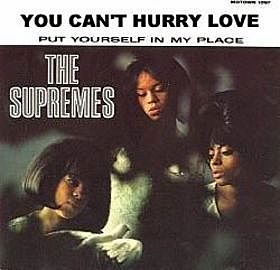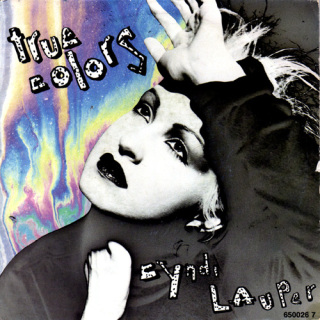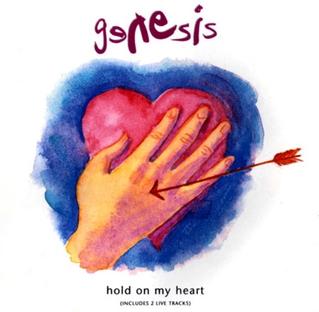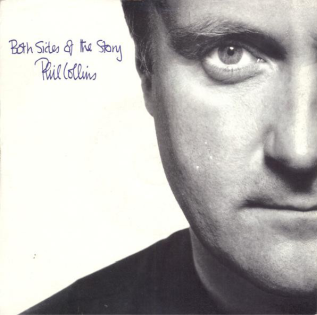
"Woodstock" is a song written by Canadian-American singer-songwriter Joni Mitchell. At least four notable versions of the song were released in the same year, 1970. Mitchell's own version was first performed live in 1969 and appeared in April 1970 on her album Ladies of the Canyon and as the B-side to her single "Big Yellow Taxi". This publication was preceded by Crosby, Stills, Nash & Young's version, which appeared on their March 1970 album Déjà Vu and became a staple of classic rock radio and the best-known version in the United States. A third version, by the British band Matthews Southern Comfort became the best known version in the United Kingdom, and was the highest charting version of the song, reaching the top of the UK Singles Chart in 1970. A fourth version by studio project the Assembled Multitude also became a chart hit.

...But Seriously is the fourth solo studio album by English drummer and singer-songwriter Phil Collins. It was released on 20 November 1989 in the United Kingdom by Virgin Records and by Atlantic Records in the United States. After Collins finished touring commitments with the rock band Genesis in 1987, the group entered a four-year hiatus, during which Collins starred in the feature film Buster (1988). By the spring of 1989, Collins had written material for a new solo album, which addressed more serious lyrical themes, like socio-economic and political issues, as opposed to his previous dance-oriented album, No Jacket Required (1985).

"You Can't Hurry Love" is a 1966 song originally recorded by the Supremes on the Motown label. It was released on July 25 of 1966 as the second single from their studio album The Supremes A' Go-Go (1966).

"True Love" is a popular song written by American songwriter Cole Porter, published in 1956. The song was introduced by Bing Crosby and Grace Kelly in the musical film High Society. "True Love" was nominated for the Academy Award for Best Original Song. Kelly's contribution on the record is relatively minor, duetting with Crosby on only the final chorus. Nonetheless, the single is co-credited to her.

"Another Day in Paradise" is a song written and recorded by English drummer and singer Phil Collins. Produced by Collins along with Hugh Padgham, it was released as the first single from his number-one album ...But Seriously (1989). As with his song for Genesis, "Man on the Corner", the track has as its subject the problem of homelessness and paradise; as such, the song was a substantial departure from the dance-pop music of his previous album, No Jacket Required (1985).

"I'm Every Woman" is a song by American singer Chaka Khan, released in September 1978 by Warner Bros. as her debut solo single from her first album, Chaka (1978). It was Khan's first hit outside her recordings with the funk band Rufus. "I'm Every Woman" was produced by Arif Mardin and written by the successful songwriting team Nickolas Ashford and Valerie Simpson. The single established Chaka's career outside the group Rufus, whom she would leave after their eighth studio album, Masterjam, was released in late 1979.

"In Too Deep" is a song by English rock band Genesis, included as the fourth track on their 13th studio album, Invisible Touch (1986). It was released as the second single from the LP in the UK and the fifth single in the US. The single was a success in America during the summer of 1987; it reached the No. 3 spot on the US Billboard Hot 100 chart, and the No. 1 spot on the Adult Contemporary chart. The song was only performed live during the 1986 North American legs during the Genesis 1986–87 Invisible Touch world tour. An October 1986 performance of the song was included on the 1992 live album The Shorts.

"No Son of Mine" is a song by British rock group Genesis, released in October 1991 by Atlantic and Virgin as the lead single from their 14th album, We Can't Dance (1991). The song, written by Phil Collins and composed by him with Tony Banks and Mike Rutherford, reached No. 6 on the UK Singles Chart and No. 12 on the US Billboard Hot 100. It was also a top-10 hit in several European countries and peaked atop Canada's RPM 100 Hit Tracks chart for five weeks.

"True Colors" is a song written by American songwriters Billy Steinberg and Tom Kelly. It was both the title track and the first single released from American singer Cyndi Lauper's second studio album of the same name (1986). Released in mid-1986, the song would become a hit for Lauper, spending two weeks at number one on the US Billboard Hot 100, becoming her last single to occupy the top of the chart. It received a Grammy Award nomination for Best Female Pop Vocal Performance.

"Easy Lover" is a song performed by Philip Bailey of the band Earth, Wind & Fire and Phil Collins of the band Genesis, jointly written and composed by Bailey, Collins, and Nathan East. The song appears on Bailey's solo album, Chinese Wall. Collins has performed the song in his live concerts, and it appears on both his 1990 album, Serious Hits... Live!, and his 1998 compilation album, ...Hits. It is Bailey's only US Top 40 hit as a solo artist.

"Hold on My Heart" is a song by English rock band Genesis from their 14th studio album, We Can't Dance (1991). The ballad was released as the album's third single on 6 April 1992. The song reached number one on the Canadian RPM 100 Hit Tracks chart, the RPM Adult Contemporary chart, and the US Billboard Adult Contemporary chart, as well as number 12 on the Billboard Hot 100. In the band's home country, the song peaked at number 16 on the UK Singles Chart.

"Separate Lives" is a 1985 song recorded by Phil Collins and Marilyn Martin and featured on the soundtrack to the motion picture White Nights. It reached No. 1 on the US Billboard Hot 100 and Adult Contemporary charts as well as in Canada and Ireland. It reached No. 4 on the UK Singles Chart, and was certified silver by the British Phonographic Industry.

"The One" is the title track and first single released from English musician Elton John's 1992 album of the same name. On bonus footage for the DVD release of his concert Live in Barcelona, John states that he felt an intense connection to Bernie Taupin's lyrics for the song, in light of his personal circumstances around the time of making the album, in particular the line "for each man in his time is Cain until he walks along the beach".
"By the Time This Night Is Over" is a song by American musician Kenny G and singer-songwriter Peabo Bryson, released as a single from Kenny G's sixth studio album, Breathless, in 1993 and from Bryson's 16th studio album, Through the Fire, in 1994. The song peaked at number 25 on the US Billboard Hot 100 chart and number 37 on the Billboard Hot R&B Singles. On the Hot Adult Contemporary Tracks chart, "By the Time This Night Is Over" spent two weeks at number one, while in Canada, the song reached number six on the RPM Top Singles chart and number one on the RPM Adult Contemporary chart.

"Something Happened on the Way to Heaven" is a song by English drummer Phil Collins, released in April 1990 from his fourth studio album, ...But Seriously (1989). The song peaked at No. 4 on the US Billboard Hot 100 the week of October 6, 1990 and No. 15 on the UK Singles Chart. A live version also appears on the Serious Hits... Live! album. The song is often identified by the recurring hook of "How many times can I say 'I'm sorry'?", however, the title of the song is essentially the 2nd line of the 2nd verse.

"Do You Remember?" is a song by the English drummer and singer-songwriter Phil Collins. It was released in April 1990 as the fourth single from his fourth solo studio album ...But Seriously. It was produced by Collins and Hugh Padgham and features singer-songwriter Stephen Bishop on the track as a backing vocalist. The song had minor success in European countries but went to number one on both the Canadian and US Adult Contemporary charts. It also peaked at number four on the US Billboard Hot 100, becoming his 14th and last top-ten hit.

"Both Sides of the Story" is a song performed by English singer-songwriter, drummer, actor and lead singer of Genesis, Phil Collins. The song was released in October 1993 by Virgin, WEA and Atlantic as the lead single from his fifth album, Both Sides (1993). The song reached number seven on the UK Singles Chart, and numbers 25 and 20 on the US Billboard Hot 100 and Cash Box Top 100. It charted the highest in Canada, peaking at number two on the RPM Top Singles chart. The single's B-sides vary, as copies of the single include either "Always" or "Rad Dudeski".

"Everyday" is a song by English musician Phil Collins, released as the second single of his fifth studio album, Both Sides (1993). The single achieved success mostly in North America in early 1994. In 2004, it was included as the seventh track on Collins' compilation album Love Songs: A Compilation... Old and New.

"Never a Time" is the fifth track from English rock band Genesis's 14th studio album, We Can't Dance (1991). This song, a ballad, was released as the fifth single from the album, and peaked at No. 4 on the US Billboard Hot Adult Contemporary Tracks chart, No. 21 on the Billboard Hot 100, and No. 9 in Canada.

"Day by Day" is a folk rock ballad from the 1971 Stephen Schwartz and John-Michael Tebelak musical Godspell. It is the third song in the show's score and is reprised as the closing number for the 1973 film version.



















